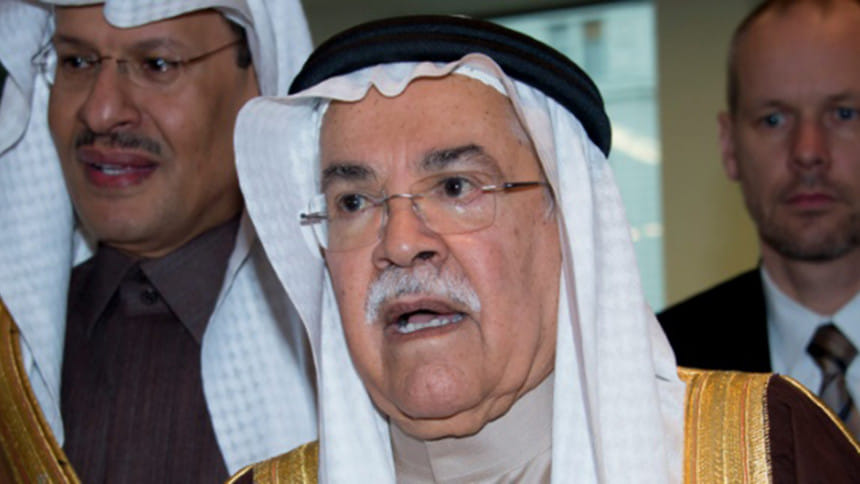Four oil producers to freeze output

Oil ministers from three Opec countries, Saudi Arabia, Qatar and Venezuela, as well as Russia, agreed to freeze oil output at January levels, as long as others follow suit.
The announcement came after the four ministers met in Doha on Tuesday.
The move is designed to support the oil price, which has dropped sharply in recent months.
Oil prices have fallen about 70% from their recent peak of around $116 a barrel in June 2014.
The steep decline is due to oversupply, sluggish demand and worries about the global economic outlook.
Brent crude, which had been up more than 5% earlier, fell back to be 0.76% higher at $33.61 a barrel, while US crude was up 0.3% at $29.85
Saudi Arabian oil minister Ali al-Naimi said: "Freezing now at the January level is adequate for the market. We don't want significant gyrations in prices, we want to meet demand. We want a stable oil price."
'Pressure'
The closed-door meeting indicates the mood may be shifting among producers, especially Saudi Arabia, which has been determined to defend market share rather than prices in the face of competition from US shale oil producers.

Opec's plan to drive out higher-cost producers has proved largely ineffective.
City Index analyst Fawad Razaqzada said the move had disappointed the market slightly because many had hoped for a cut rather than a production freeze.
"In the short term, oil prices may come under some pressure. Nevertheless, it is a step in the right direction and if other major producers follow suit then at the very least it should help to prevent oil prices from suffering further big falls," he said.
Olivier Jakob, a Petromatrix strategist, said: "It's really the first supply management decision taken since November 2014, so even though there will be some that will try to discount it and say it's not a cut, it's a change. It is a big change in policy."
Oil-producing nations have had to cut spending, increase deficit forecasts and push through politically unpopular reforms.
Venezuela's oil minister, Eulogio Del Pino, has visited major oil producers in recent weeks to rally support for the idea of freezing production at current levels in an effort to stabilise prices.
Shortly after Tuesday's announcement, Del Pino said he would travel to Tehran to meet with ministers from Iraq and Iran on Wednesday.
Over the weekend Iran started its first exports to Europe since the lifting of western sanctions last month.
Iran has said it wants to increase supply in an effort to regain market share.

 For all latest news, follow The Daily Star's Google News channel.
For all latest news, follow The Daily Star's Google News channel. 








Comments